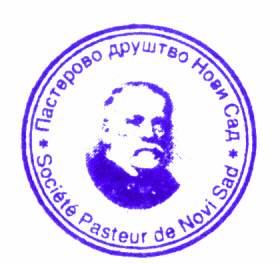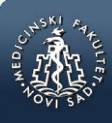md-medicaldata
Main menu:
- Naslovna/Home
- Arhiva/Archive
- Godina 2024, Broj 1
- Godina 2023, Broj 3
- Godina 2023, Broj 1-2
- Godina 2022, Broj 3
- Godina 2022, Broj 1-2
- Godina 2021, Broj 3-4
- Godina 2021, Broj 2
- Godina 2021, Broj 1
- Godina 2020, Broj 4
- Godina 2020, Broj 3
- Godina 2020, Broj 2
- Godina 2020, Broj 1
- Godina 2019, Broj 3
- Godina 2019, Broj 2
- Godina 2019, Broj 1
- Godina 2018, Broj 4
- Godina 2018, Broj 3
- Godina 2018, Broj 2
- Godina 2018, Broj 1
- Godina 2017, Broj 4
- Godina 2017, Broj 3
- Godina 2017, Broj 2
- Godina 2017, Broj 1
- Godina 2016, Broj 4
- Godina 2016, Broj 3
- Godina 2016, Broj 2
- Godina 2016, Broj 1
- Godina 2015, Broj 4
- Godina 2015, Broj 3
- Godina 2015, Broj 2
- Godina 2015, Broj 1
- Godina 2014, Broj 4
- Godina 2014, Broj 3
- Godina 2014, Broj 2
- Godina 2014, Broj 1
- Godina 2013, Broj 4
- Godina 2013, Broj 3
- Godina 2013, Broj 2
- Godina 2013, Broj 1
- Godina 2012, Broj 4
- Godina 2012, Broj 3
- Godina 2012, Broj 2
- Godina 2012, Broj 1
- Godina 2011, Broj 4
- Godina 2011, Broj 3
- Godina 2011, Broj 2
- Godina 2011, Broj 1
- Godina 2010, Broj 4
- Godina 2010, Broj 3
- Godina 2010, Broj 2
- Godina 2010, Broj 1
- Godina 2009, Broj 4
- Godina 2009, Broj 3
- Godina 2009, Broj 2
- Godina 2009, Broj 1
- Supplement
- Galerija/Gallery
- Dešavanja/Events
- Uputstva/Instructions
- Redakcija/Redaction
- Izdavač/Publisher
- Pretplata /Subscriptions
- Saradnja/Cooperation
- Vesti/News
- Kontakt/Contact
 Pasterovo društvo
Pasterovo društvo
- Disclosure of Potential Conflicts of Interest
- WorldMedical Association Declaration of Helsinki Ethical Principles for Medical Research Involving Human Subjects
- Committee on publication Ethics
CIP - Каталогизација у публикацији
Народна библиотека Србије, Београд
61
MD : Medical Data : medicinska revija = medical review / glavni i odgovorni urednik Dušan Lalošević. - Vol. 1, no. 1 (2009)- . - Zemun : Udruženje za kulturu povezivanja Most Art Jugoslavija ; Novi Sad : Pasterovo društvo, 2009- (Beograd : Scripta Internacional). - 30 cm
Dostupno i na: http://www.md-medicaldata.com. - Tri puta godišnje.
ISSN 1821-1585 = MD. Medical Data
COBISS.SR-ID 158558988
GENETSKI UZROCI INFERTILITETA KOD MUŠKARACA
/
GENETIC CAUSES OF MALE INFERTILITY
Authors
Milan R. Obrenović1, Boris K. Privrodski2, Ivana I. Kavečan3, Jadranka D. Jovanović Privrodski3, Jasmina M. Mićanović4, Dušan P. Vuleta5, Helena D. Hrnjak Ilić6
1Kabinet za molekularnu genetiku, Institut za zdravstvenu zaštitu dece i omladine Vojvodine
2Klinika za dečiju hirurgiju, Institut za zdravstvenu zaštitu dece i omladine Vojvodine
3University of Novi Sad, Faculty of Medicine, Novi Sad, Serbia
4Dom zdravlja, Sombor
5Klinički Centar Vojvodine, Novi Sad, Serbia
6Dom zdravlja, Temerin
UDK: 616.697:575
The paper was received 03.01.2018. Accepted: 03.02.2018.
Rad primljen: 03.01.2018. Rad prihvaćen: 03.02.2018.
Corresponding author/ Autor za korespodenciju:
Prof. dr Ivana Kavečan
Faculty of Medicine, University of Novi Sad
Hajduk Veljkova 3
21000 Novi Sad, Srbija
tel. 021 4880444
e-mail: ivana.kavecan@mf.uns.ac.rs
Sažetak
Sterilitet je u današnje vreme rastući problem. Genetski uzrok muškog steriliteta uključujući i hromozomske aberacije, mutacije gena i genetičke polimorfizme čini uzrok oko 10-15% slučajeva neplodnosti. Muškarci koji imaju hromozomske aberacije stvaraju spermatozoide sa aberantnim hromozomima u povećanom broju u odnosu na zdrave spermatozoide. Najčešći mogući genetski uzroci infertiliteta kod muškarca su: aneuploidije polnih hromozoma (Klinefelterov sindrom; sindrom dvostrukog Y hromozoma) i strukturne hromozomske aberacije (mikrodelecije Y hromozoma; translokacije i druge); mutacije gena i polimorfizam gena. Kako bi se mogla pružiti adekvatna genetska informacija supružnicima, značajna je detekcija genetskih faktora muškog infertiliteta pre samog postupka biomedicinski potpomognute oplodnje.
Ključne reči
muški infertilitet; kariotipizacija; hromozomske aberacije; mutacije; polimorfizam
Abstract
Infertility is a growing problem nowadays. The genetic cause of male infertility, including chromosomal aberrations, gene mutations and genetic polymorphisms are responsible for about 10-15% of infertility cases. Men who have chromosomal aberrations produce an increased number of spermatozoa with aberrations in comparison to healthy men. The most common possible genetic causes of infertility in a man are: chromosomal aberrations (Klinefelter syndrome, Double Y chromosome syndrome) and structural chromosomal aberrations (Y chromosomes microdeletions, translocations, and others); gene mutations and gene polymorphism. In order to provide adequate genetic information to spouses, detection of genetic factors of male infertility is important before process of biomedically assisted fertilization.
Key words:
Infertility, Male; Chromosome Aberrations; Karyotyping; Mutations; Polymorphisms
Reference / Literatura
- Barratt CLR, Björndahl L, De Jonge CJ, Lamb DJ, Osorio Martini F, McLachlan R, et al. The diagnosis of male infertility: an analysis of the evidence to support the development of global WHO guidance-challenges and future research opportunities. Hum Reprod Update 2017;23(6):660-80.
- Neto FT, Bach PV, Najari BB, Li PS, Goldstein M. Genetics of Male Infertility. Curr Urol Rep 2016;17(10):70. doi: 10.1007/s11934-016-0627.
- Flannigan R, Schlegel PN. Genetic diagnostics of male infertility in clinical practice. Best Pract Res Clin Obstet Gynaecol 2017;44:26-37.
- Kort JD, McCoy RC, Demko Z, Lathi RB. Are blastocyst aneuploidy rates different between fertile and infertile populations? J Assist Reprod Genet. 2017 Oct 23. doi: 10.1007/s10815-017-1060-x.
- Simon L, Emery BR, Carrell DT. Review: Diagnosis and impact of sperm DNA alterations in assisted reproduction. Best Pract Res Clin Obstet Gynaecol. 2017 Oct;44:38-56. doi: 10.1016/j.bpobgyn.2017.07.003.
- Flannigan R, Schlegel PN. Genetic diagnostics of male infertility in clinical practice. Best Pract Res Clin Obstet Gynaecol. 2017 Oct;44:26-37. doi: 10.1016/j.bpobgyn.2017.05.002.
- Das L, Parbin S, Pradhan N, Kausar C, Patra SK. Epigenetics of reproductive infertility. Front Biosci 2017;9:509-35.
- Tournaye H, Krausz C, Oates RD. Concepts in diagnosis and therapy for male reproductive impairment. Lancet Diabetes Endocrinol 2017;5(7):554-64. doi: 10.1016/S2213-8587(16)30043-2.
- Donker RB, Vloeberghs V, Groen H, Tournaye H, van Ravenswaaij-Arts CMA, Land JA. Chromosomal abnormalities in 1663 infertile men with azoospermia: the clinical consequences. Hum Reprod 2017;32(12):2574-80. doi: 10.1093/humrep/dex307.
- O'Flynn O, Varghese AC, Agarwal A. The genetic causes of male factor infertility: a review. Fertil Steril 2010;93(1):1-12.
- Dumont A, Barbotin AL, Lefebvre-Khalil V, Mitchell V, Rigot JM, Boitrelle F, et al. Necrozoospermia: From etiologic diagnosis to therapeutic management. Gynecol Obstet Fertil Senol 2017;45(4):238-48.
- Dohle GR, Halley DJ, Van Hemel JO, van den Ouwel AM, Pieters MH, Weber RF, et al. Genetic risk factors in infertile men with severe oligozoospermia and azoospermia. Hum Reprod 2002;17(1):13-6.
- Borjian Boroujeni P, Sabbaghian M, Vosough Dizaji A, Zarei Moradi S, Almadani N, Mohammadpour Lashkari F, et al. Clinical aspects of infertile 47,XYY patients: a retrospective study. Hum Fertil (Camb) 2017; 18:1-6. doi: 10.1080/14647273.2017.1353143.
- Tüttelmann F, Gromoll J, Kliesch S. Genetics of male infertility. Urologe A 2008;47(12):1561-2,1564-7.
- Bhasin S. Approach to the infertile man. J Clin Endocrinol Metab 2007;92(6):1995-2004.
- Poongothai J, Gopenath TS, Manonayaki S. Genetics of human male infertility. Singapore Med J 2009;50(4):336-47.
- Sertić J, Cvitković P, Myers A, Saiki RK, Stavljenić Rukavina A. Genetic markers of male infertility: Y chromosome microdeletions and cystic fibrosis transmembrane conductance gene mutations. Croat Med J 2001;42(4):416-20.
- Anawalt BD. Approach to male infertility and induction of spermatogenesis. J Clin Endocrinol Metab 2013;98(9):3532-42. doi: 10.1210/jc.2012-400.
- Wosnitzer MS. Genetic evaluation of male infertility. Transl Androl Urol 2014;3(1):17-26. doi: 10.3978/j.issn.2223-4683.2014.02.04.
- Krausz C. Male infertility: pathogenesis and clinical diagnosis. Best Pract Res Clin Endocrinol Metab 2011;25(2):271-85. doi: 10.1016/j.beem.2010.08.006.
- Zini A, Bach PV, Al-Malki AH, Schlegel PN. Use of testicular sperm for ICSI in oligozoospermic couples: how far should we go? Hum Reprod. 2017;32(1):7-13.
- Nudell DM, Turek PJ. Genetic causes of male infertility: current concepts. Curr Urol Rep. 2000;1(4):273-81.
- Röpke A, Tüttelmann F. Mechanisms in endocrinology: Aberrations of the X chromosome as cause of male infertility. Eur J Endocrinol 2017;177(5):R249-R259.
- Kim SY, Kim HJ, Lee BY, Park SY, Lee HS, Seo JT. Y Chromosome Microdeletions in Infertile Men with Non-obstructive Azoospermia and Severe Oligozoospermia. J Reprod Infertil 2017;18(3):307-15.
- Jiang L, Jin J, Wang S, Zhang F, Dai Y, Shi L, et al. CFTR gene mutations and polymorphism are associated with non-obstructive azoospermia: From case-control study. Gene 2017;626:282-9.
- Stuhrmann M, Dörk T. CFTR gene mutations and male infertility. Andrologia 2000;32(2):71-83.
- Chen H, Ruan Y, Xu W, Chen J, Chan H. Regulation of male fertility by CFTR and implications in male infertility. Human Reproduction Update, Volume 18, Issue 6, 1 November 2012, Pages 703–13.
- Mou L, Gui Y. A novel variant of androgen receptor is associated with idiopathic azoospermia. Mol Med Rep. 2016;14(4):2915-20. doi: 10.3892/mmr.2016.5587.
- Pan B, Li R, Chen Y, Tang Q, Wu W, Chen L, et al. Genetic Association Between Androgen Receptor Gene CAG Repeat Length Polymorphism and Male Infertility: A Meta-Analysis.Medicine (Baltimore). 2016;95(10):2878.
- Khatami SR, Galehdari H, Rasekh A, Mombeini H, Konar E. Assessment of Correlation between Androgen Receptor CAG Repeat Length and Infertility in Infertile Men Living in Khuzestan, Iran. Int J Fertil Steril. 2015;9(2):189-96.
- Cornet D, Cohen M, Clement A, Amar E, Fournols L, Clement P, et al. Association between the MTHFR-C677T isoform and structure of sperm DNA. J Assist Reprod Genet. 2017;34(10):1283-8. doi: 10.1007/s10815-017-1015-2.
- Karaca MZ, Konac E, Yurteri B, Bozdag G, Sogutdelen E, Bilen CY. Association between methylenetetrahydrofolate reductase (MTHFR) gene promoter hypermethylation and the risk of idiopathic male infertility.Andrologia. 2017 Sep;49(7). doi: 10.1111/and.12698.
- Louie K, Minor A, Ng R, Poon K, Chow V, Ma S. Evaluation of DNA methylation at imprinted DMRs in the spermatozoa of oligozoospermic men in association with MTHFR C677T genotype.Andrology. 2016 Sep;4(5):825-31.
- Chen P, Wang X, Xu C, Xiao H, Zhang WH, Wang XH, et al. Association of polymorphisms of A260G and A386G in DAZL gene with male infertility: a meta-analysis and systemic review.Asian J Androl. 2016 Jan-Feb;18(1):96-101. doi: 10.4103/1008-682X.153542.
- Teng YN, Chang YP, Tseng JT, Kuo PH, Lee IW, Lee MS, et al. A single-nucleotide polymorphism of the DAZL gene promoter confers susceptibility to spermatogenic failure in the Taiwanese Han. Hum Reprod. 2012 Sep;27(9):2857-65. doi: 10.1093/humrep/des227. Epub 2012 Jun 29.
- Nuti F, Krausz C. Gene polymorphisms/mutations relevant to abnormal spermatogenesis. Reprod Biomed Online 2008;16(4):504-13.
- Demain LA, Conway GS, Newman WG. Genetics of mitochondrial dysfunction and infertility. Clin Genet 2017;91(2):199-207. doi: 10.1111/cge.12896.
- Tsitlakidis D, Katopodi T, Goulis DG, Papadimas I, Kritis A. Association of follicle-stimulating hormone receptor single nucleotide polymorphisms with fertility in Greek men. J Endocrinol Invest. 2017;40(7):721-726. doi: 10.1007/s40618-017-0637-7.
- Gharesi-Fard B, Ghasemi Z, Shakeri S, Behdin S, Aghaei F, Malek-Hosseini Z. The frequency of follicle stimulating hormone receptor gene polymorphisms in Iranian infertile men with azoospermia. Iran J Reprod Med 2015;13(11):673-8.
- Leavy M, Trottmann M, Liedl B, Reese S, Stief C, Freitag B, et al. Effects of Elevated β-Estradiol Levels on the Functional Morphology of the Testis - New Insights. Sci Rep 2017;7:39931. doi: 10.1038/srep39931.
- Yu W, Zheng H, Lin W, Tajima A, Zhang Y, Zhang X, et al. Estrogen promotes Leydig cell engulfment by macrophages in male infertility. J Clin Invest. 2014 Jun;124(6):2709-21. doi: 10.1172/JCI59901.
- Bulun SE.Aromatase and estrogen receptor α deficiency. Fertil Steril. 2014 Feb;101(2):323-9. doi: 10.1016/j.fertnstert.2013.12.022.
PDF Obrenović R. M. et al • MD-Medical Data 2018;10(1): 011-016
 Medicinski fakultet
Medicinski fakultet